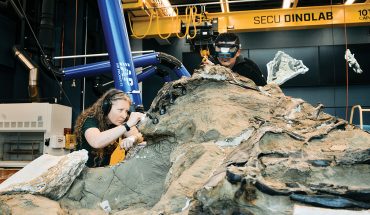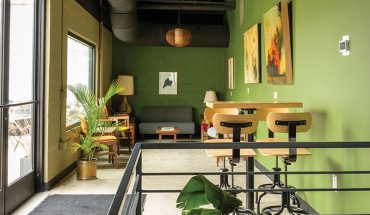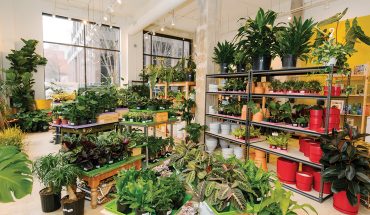by Bill Krueger
photographs by Tim Lytvinenko
What is the Oak City Cycling Project? Yes, it involves bikes. But what kind of project, exactly, are David Zell, Ken Metzger and Jared Harber up to behind the giant garage door at the bottom of a Franklin Street driveway in the newly buzzing Person Street neighborhood?
The Oak City Cycling Project is a bike shop, a place where new and used bicycles are sold. It’s a place where bicycles are repaired and refurbished, either by the staff or by a customer who rents one of the store’s work stands for $5 an hour and makes his or her own repairs, using the shop’s tools if necessary. It’s a place where you can sell your bike on consignment, rent a bike, join other cyclists for a ride, or hang out with other people who share your passion. It is also a place of advocates who hope to help turn Raleigh into a more hospitable city for cyclists, pushing for more bike lanes and greater awareness of bicycles on the road.
What it is not, the three owners of the store insist, is a retreat for bicycle snobs. “We try to be the exact opposite,” says Metzger. “We will answer any questions – no pressure, no attitude. It’s one of the most important things about this shop.”
Zell and Harber, the other two owners, agree. They talk about having an open-door policy and, in their case, they mean it. When Oak City Cycling’s huge garage door is open, anyone is welcome to walk in or even ride a bike down the driveway and into the store. Repairs are done up front, making the owners accessible as they work and able to demonstrate what they do. “People are still discovering us,” says Zell. “They walk in and ask, ‘What is this place?’ It’s a place where people can come in and exchange information about bikes. It’s a very collaborative space. We’re open to our customers’ ideas.”
The Oak City Cycling Project moved into its present Person Street corridor location, nestled on a side street between William Peace University and the Oakwood and Mordecai neighborhoods, in May 2012. But its roots go back a year earlier.
Zell, 31, moved to Raleigh in 2007, hoping that he could find a job working with a nonprofit in a city that he had been told had a “fresh vibe.” His goal was to do it without a car. He’d gotten serious about cycling at Elon University and after completing a cross-country cycling trip to help raise awareness for people with disabilities. Metzger, 37, grew up in Raleigh’s Brookhaven neighborhood near Crabtree Valley Mall and often rode his bike downtown to find a quiet spot on Fayetteville Street Mall or the state Capitol grounds to read a book. The two met while playing in a recurring pick-up soccer game, and the conversation eventually turned to bicycles. “Ken and I had joked at a party about wanting to start a bike shop,” Zell says.
They rented a small backyard shed and started refurbishing old bikes – Zell has a preference for those with solid steel frames – they found at yard sales or on eBay or Craigslist. They worked on Wednesday nights and Sunday mornings, juggling their full-time jobs and selling refurbished bikes on the side. One Sunday, they sold their entire inventory of six bikes. “We were outgrowing our space at that point,” says Zell. “It was totally word of mouth.”
So they moved into a larger space on West Street, and it was there that Harber joined the team. He had worked at other bike shops but was eager to build a life centered on downtown Raleigh.
Their business continued to grow, prompting them to move into their current space a couple of years ago. Zell quit his other job, and Metzger cut back on his hours as a credit union analyst until he finally quit a few months ago to devote all his attention to the Oak City Cycling Project. “I don’t get paid as much as I used to,” he says. “But for right now, it’s enough. The goal is to make it more than just enough.”
They’ve never taken out a large loan to fund their business. Instead, it has grown organically along with their customer base. When they made the move to their current space, customers helped out by riding the shop’s inventory of bicycles to their new home.
That’s the kind of community that makes this a “project” instead of a shop, Zell says. “We always wanted to be something that’s evolving.”






